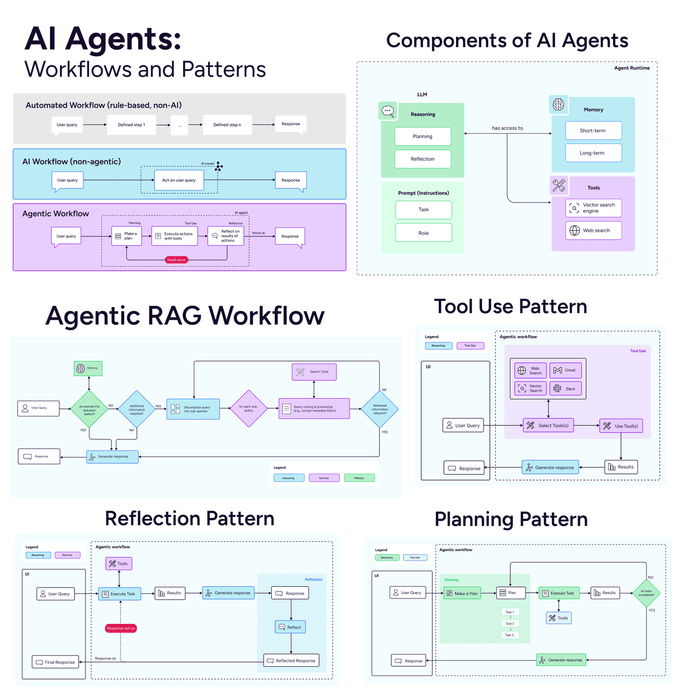Sublime
An inspiration engine for ideas

Rare that I hear something new in the AI debate, but this is one such case. https://t.co/JcUWT8Q5CS

What's the difference between *just* AI and truly 𝗮𝗴𝗲𝗻𝘁𝗶𝗰 𝘄𝗼𝗿𝗸𝗳𝗹𝗼𝘄𝘀?
(And why does it even matter?)
There's a lot of debate on what makes something an "agent" versus just another AI application.
The key difference? 𝗦𝘁𝗮𝘁𝗶𝗰 𝗔𝗜 𝗺𝗼𝗱𝗲𝗹𝘀 𝘃𝘀. 𝗗𝘆𝗻𝗮𝗺𝗶𝗰 𝗔𝗜... See more
A very common trope is to treat LLMs as if they were intelligent agents going out in the world and doing things. That’s just a category mistake. A much better way of thinking about them is as a technology that allows humans to access information from many other humans and use that information to make decisions.
Steven Johnson • Revenge of the Humanities
work. Here, we offer eleven clues drawn from the cognitive sciences—psychology, linguistics, and philosophy—that
Ernest Davis • Rebooting AI: Building Artificial Intelligence We Can Trust
We rely on the machine to do the hard work of analysis and synthesis, and we don’t engage in critical and reflective thinking ourselves. We also miss the opportunity to learn from our mistakes and feedback and the chance to develop our own style.
Ethan Mollick • Co-Intelligence: Living and Working with AI

Everyone "knows" that as AI gets better, humans become less valuable. Except three economists just proved the exact opposite using math from 1973 and Steve Jobs.
And it explains something that's been driving researchers crazy...
Why did computers make inequality WORSE but ChatGPT is making... See more
Thoughts on AI
linkedin.com
Generative AI challenges us intellectually. John Searle at Berkeley talked about the Chinese Room argument. ( It says that no matter how smart a computer seems, it can’t have human consciousness.–Ed ) Well, the Chinese Room showed up. I recently gave an example. I used Google to give me a Chinese output for: “Who is Ai Weiwei?”
iRobot Founder: Don’t Believe The (AI & Robotics) Hype!
